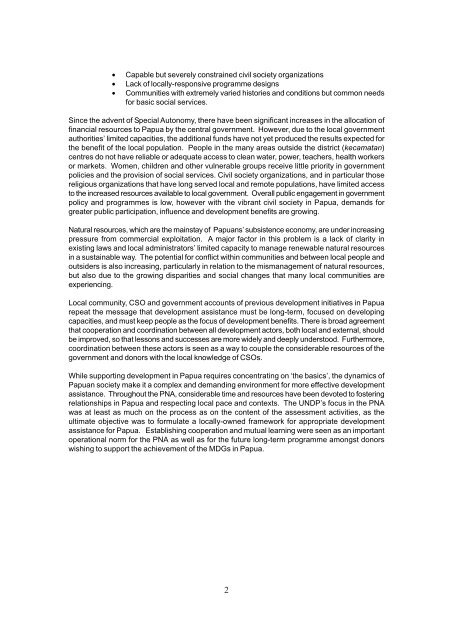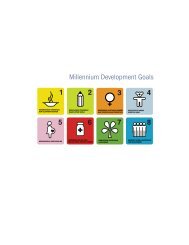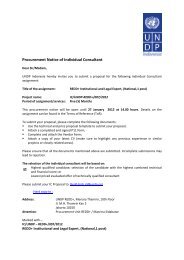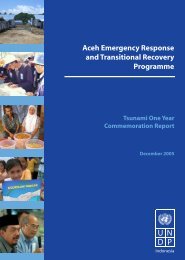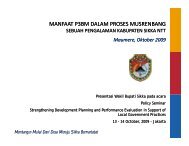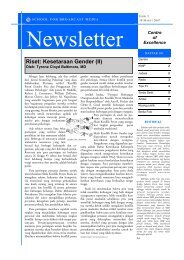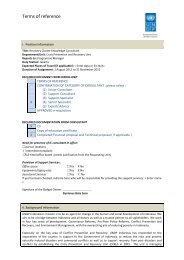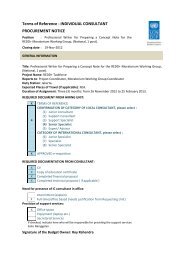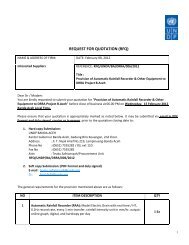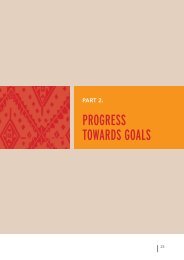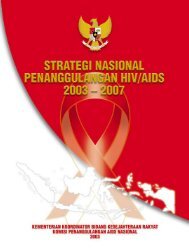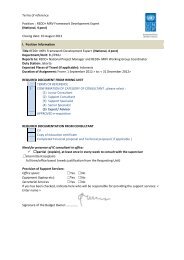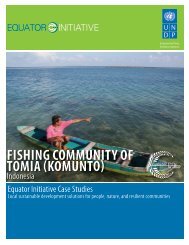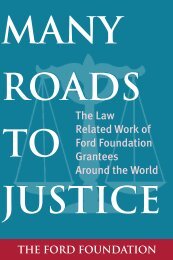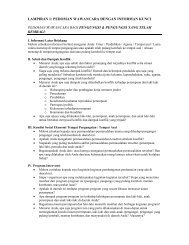Papua Needs Assessment - UNDP
Papua Needs Assessment - UNDP
Papua Needs Assessment - UNDP
You also want an ePaper? Increase the reach of your titles
YUMPU automatically turns print PDFs into web optimized ePapers that Google loves.
• Capable but severely constrained civil society organizations<br />
• Lack of locally-responsive programme designs<br />
• Communities with extremely varied histories and conditions but common needs<br />
for basic social services.<br />
Since the advent of Special Autonomy, there have been significant increases in the allocation of<br />
financial resources to <strong>Papua</strong> by the central government. However, due to the local government<br />
authorities’ limited capacities, the additional funds have not yet produced the results expected for<br />
the benefit of the local population. People in the many areas outside the district (kecamatan)<br />
centres do not have reliable or adequate access to clean water, power, teachers, health workers<br />
or markets. Women, children and other vulnerable groups receive little priority in government<br />
policies and the provision of social services. Civil society organizations, and in particular those<br />
religious organizations that have long served local and remote populations, have limited access<br />
to the increased resources available to local government. Overall public engagement in government<br />
policy and programmes is low, however with the vibrant civil society in <strong>Papua</strong>, demands for<br />
greater public participation, influence and development benefits are growing.<br />
Natural resources, which are the mainstay of <strong>Papua</strong>ns’ subsistence economy, are under increasing<br />
pressure from commercial exploitation. A major factor in this problem is a lack of clarity in<br />
existing laws and local administrators’ limited capacity to manage renewable natural resources<br />
in a sustainable way. The potential for conflict within communities and between local people and<br />
outsiders is also increasing, particularly in relation to the mismanagement of natural resources,<br />
but also due to the growing disparities and social changes that many local communities are<br />
experiencing.<br />
Local community, CSO and government accounts of previous development initiatives in <strong>Papua</strong><br />
repeat the message that development assistance must be long-term, focused on developing<br />
capacities, and must keep people as the focus of development benefits. There is broad agreement<br />
that cooperation and coordination between all development actors, both local and external, should<br />
be improved, so that lessons and successes are more widely and deeply understood. Furthermore,<br />
coordination between these actors is seen as a way to couple the considerable resources of the<br />
government and donors with the local knowledge of CSOs.<br />
While supporting development in <strong>Papua</strong> requires concentrating on ‘the basics’, the dynamics of<br />
<strong>Papua</strong>n society make it a complex and demanding environment for more effective development<br />
assistance. Throughout the PNA, considerable time and resources have been devoted to fostering<br />
relationships in <strong>Papua</strong> and respecting local pace and contexts. The <strong>UNDP</strong>’s focus in the PNA<br />
was at least as much on the process as on the content of the assessment activities, as the<br />
ultimate objective was to formulate a locally-owned framework for appropriate development<br />
assistance for <strong>Papua</strong>. Establishing cooperation and mutual learning were seen as an important<br />
operational norm for the PNA as well as for the future long-term programme amongst donors<br />
wishing to support the achievement of the MDGs in <strong>Papua</strong>.<br />
2


